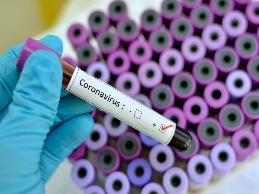For individuals with chronic obstructive pulmonary disease (COPD), it can be difficult to take a deep breath at times. This difficulty may be triggered by temperature changes, humidity levels, contaminants, pollution, chemical fumes, and the performance of a strenuous task. COPD is a progressive disease that gets worse over time, making it hard to breathe (National Heart, Lung, and Blood Institute, 2013). Millions of people have been diagnosed with varying levels of COPD. However, with advancement in oxygen portability, medications, and therapies, many individuals are continuing to work after a diagnosis.
High air quality is very important for those working with COPD. To improve air quality, workplace accommodations can include: air purifiers, fragrance-free common areas, and fresh air breaks. Fans can also help circulate air in confined areas. Telework and a modification of work schedule can also be helpful during times of inclement weather, such as excessively hot or cold temperatures.
Location of workstation can also be important to someone with COPD. Being close to food areas, restrooms, cleaning materials, and maintenance areas can cause odors that are hazardous to someone with COPD. Keeping a work area free of pollutants such as cleaning agents, pesticides, exhaust fumes, and tobacco smoke will improve air quality.
Use of oxygen at work is often a consideration when accommodating an employee with COPD. Besides compressed oxygen gas in a tank or cylinder, many portable and stationary concentrators are now available for use, making it easier for someone with COPD to use supplemental oxygen outside of the house. This could include work-related travel. Accommodations may need to be made to arrange for the transport of an employee’s oxygen when the employee is required to travel for work. This may include talking with hotels, airlines, and other facilities regarding what is needed for the employee to carry oxygen. Safety is always an important consideration with oxygen use, including accessing a safe electrical connection and keeping oxygen canisters and other devices away from an open flame. Often, an oxygen supply company will do an on-site visit regarding safe usage upon request.
For more information on how to have supplemental oxygen in the workplace, see: Oxygen Therapy Safety Tips: Preventing Fires and Other Accidents.
Other resources that might be helpful:
- Contact your state OSHA On-Site Consultation Program, which offers free and confidential safety and occupational health advice, to have an air quality test performed.
- Contact a specialist in the industrial hygiene field from the American Industrial Hygiene Association.
- Contact the National Air Filtration Association, which provides referrals for air quality specialists.
Because COPD can have such serious effects on an individual, it may also be linked to anxiety and depression. The lifestyle changes that accompany the disease cause physical as well as mental challenges. For more information on accommodations for individuals with anxiety and depression, see JAN’s Accommodation Information by Disability: A to Z. For additional information on accommodation ideas, contact JAN directly.










